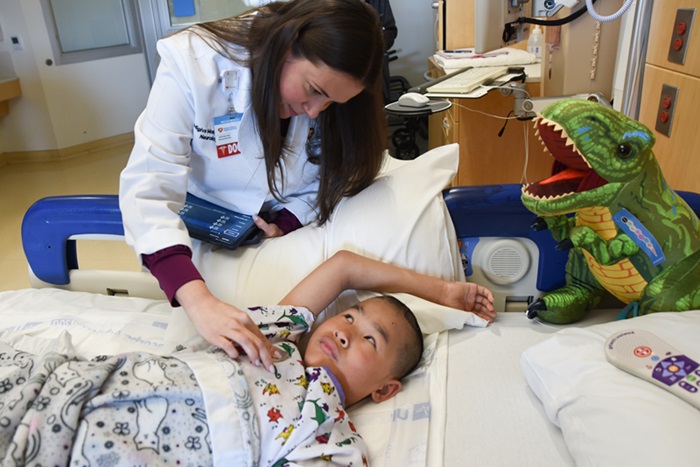Tamryn, age 9, was a regular boy who enjoyed swimming and biking when he suddenly began to experience stiffness throughout his body. Over the last two years, his condition worsened to the point that he could no longer control his movements or walk. The Tallahassee native’s family sought the care of specialists throughout the state until they were connected to Nicklaus Children’s Hospital’s Brain Institute and its Neuromotor clinic, where they found answers.

Tamryn was diagnosed with TOR1-A Torsion Dystonia Type 1, a rare movement disorder that causes involuntary muscle contractions and abnormal movements to the point that he lost the ability to walk. Nicklaus Children’s Hospital’s neurosurgery team implanted a Deep Brain Stimulator (DBS) on Tamryn, a device that essentially works as a pacemaker for the brain to help control abnormal movements.
The device called Percept RC by Medtronic is currently the smallest and thinnest neurostimulator available for Deep Brain Stimulation. Unlike older models of DBS, this device is rechargeable with a battery lasting up to 15 years. Older models only last 2-3 years for patients with dystonia requiring them to undergo surgery for replacements.
Nicklaus Children’s has the most comprehensive program in the state utilizing deep brain stimulation in children. This work is led by Dr. Toba Niazi, Chief of Neurosurgery and Co-Director of the Brain Institute and Dr. Migvis Monduy, Director of the NeuroMotor Center, who brought together a team of specialists from across the hospital to care for Tamryn.
After only 6 months of treatment, Tamryn was showing signs of improvement and nearly a year later, he was back to running, jumping, biking and doing all the things boys his age enjoy.
Tamryn’s mother, Tamara said “He told us he felt like a real boy again, and to us, that was the best gift.”